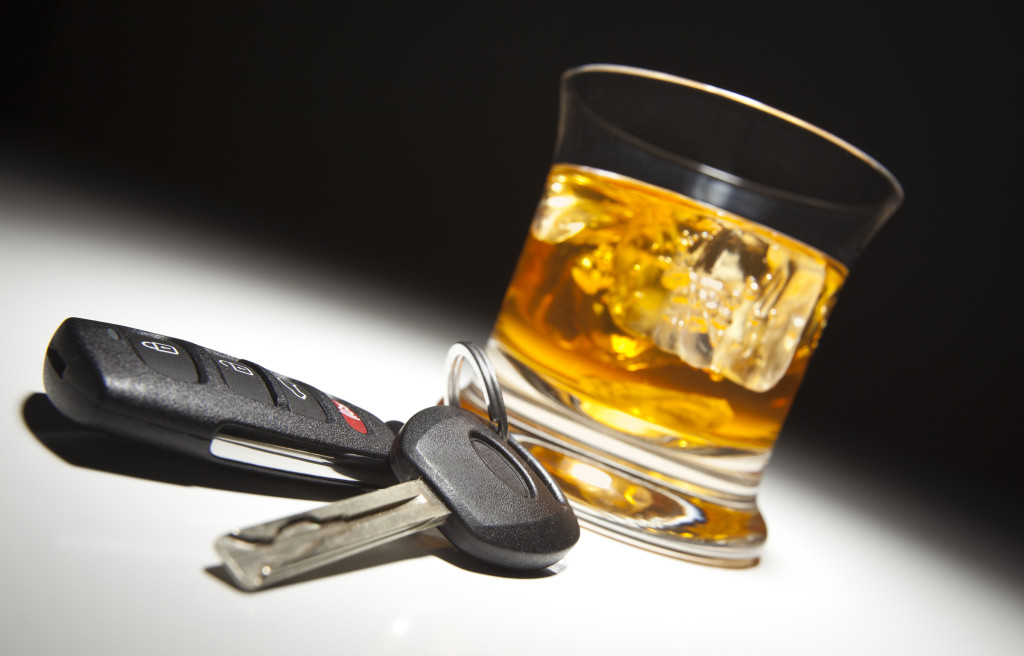 With the 4th of July weekend coming up, DUI task forces will be out. This got me thinking about the relationship between DUI and bankruptcy. I work in an office next to John Skiba and we’ve talked about how these practice areas overlap sometimes. As a dedicated DUI attorney in Mesa, Arizona, I deal with clients going through difficult financial times. And John is the go-to-resource for all things bankruptcy. He suggested a guest post. The question is: Can a judgment resulting from a DUI conviction be discharged in bankruptcy?
With the 4th of July weekend coming up, DUI task forces will be out. This got me thinking about the relationship between DUI and bankruptcy. I work in an office next to John Skiba and we’ve talked about how these practice areas overlap sometimes. As a dedicated DUI attorney in Mesa, Arizona, I deal with clients going through difficult financial times. And John is the go-to-resource for all things bankruptcy. He suggested a guest post. The question is: Can a judgment resulting from a DUI conviction be discharged in bankruptcy?
CAN I DISCHARGE A DEBT FOR CRIMINAL RESTITUTION?
Generally, no. Fines and penalties to the government are non-dischargeable. Although there are a few narrow exceptions in a chapter 13 cases, it’s rare. The government fines and penalties exception under 11 U.S.C. §§ 523(a)(7), 1328(a)(3) includes restitution payments resulting from a criminal conviction. Even though the ultimate recipient of the restitution payments is not the government but a victim, restitution is considered a rehabilitative part of a criminal conviction. Thus, it’s generally never dischargeable and deemed a government penalty.
That said, DUI cases are unique because accidents resulting from unlawful driving or DUI are often accompanied by civil lawsuits separate from the criminal case.
CAN A PERSONAL INJURY LAWSUIT CAUSED BY A DUI BE DISCHARGED?
Let’s say a person (we’ll call him Mike) makes the poor decision to drive home after having a few glasses of wine at a work party. Mike felt a little “buzzed” but thought he was okay to drive when he left. On the way home, his blood alcohol concentration (BAC) started to rise and his coordination went down the drain. As Mike was getting off the freeway to make his exit, he made an unsafe lane change and sideswiped the car next him. The other driver sustained some injury due to the crash and was sent to the hospital. When police arrived, they determined Mike’s BAC was over .15, well over the legal limit to drive in Arizona (which is a .08). .
Months later, Mike entered into a plea agreement for DUI with reduced penalties. But the plea agreement required Mike to make restitution payments to the victim. This included any medical bills and out-of-pocket costs to the victim. At the restitution hearing, Mike agreed to pay the medical insurance deductible for $5,500 and the automobile deductible for $500. The insurance company does not make a claim for the balance. Mike thought he was okay and could handle paying that debt over the course of his probation.
But then Mike was hit with a personally injury lawsuit. The lawsuit alleged that the victim’s quality of life was damaged and he also had damages for pain and suffering. Given the DUI guilty plea Mike accepted, fighting the subsequent civil case was difficult. This was because the guilty plea was used against him in the subsequent civil action. As a result, our hypothetical friend Mike had a $25,000 judgment against him. Mike can’t pay that amount and wonders what his options are.
The bad news for Mike is that in 1984, Congress added an exception to discharging debt resulting from drunk driving in chapter 7 bankruptcies. Congress amended the law in 1990 to apply to chapter 13 as well. Specifically, 11 U.S.C. §523(a)(9) includes debts for death and personal injury. And in 2005, Congress expanded this section to include vessels and aircraft. This means that judgments resulting from a boating DUI (OUI) accident can’t be discharged either.
ARE THERE EXCEPTIONS TO THIS RULE?
One argument is that the language of subsection (a)(9) presumes that the debtor met the legal standard for intoxication in the jurisdiction where the accident occurred. These standards vary state to state. Here in Arizona, .08 is the legal limit. But if the case involves a DUI due to drug use, any drug metabolite without a valid prescription causes a DUI in Arizona, regardless of actual impairment. So, does the (a)(9) statute include debts resulting from a DUI where there wasn’t any evidence of impairment? This is a tricky issue and still open for argument.
Another issue is what counts as a DUI debt. In one federal circuit, an increased insurance rate resulting from a DUI was found non-dischargeable in Lugo v. Paulsen, 886 F.2d 602 (3d Cir. 1989). But the validity of that case is in question because Congress has since amended the statute to specifically cover death and personal injury. Increased insurance has nothing to do with that in my mind.
SO WHAT’S THE BOTTOM LINE?
Not only are the consequences of a DUI harsh, there are a lot of collateral consequences that should be taken into account as well. One of those consequences is the effect a DUI has on bankruptcy. Debt incurred as a result of a DUI can last a lifetime and there’s no dischargeable relief. If you’ve been charged with a DUI, get competent legal help. The results can be serious. If you’re in Arizona and facing DUI, give me a call.
If you’ve already been convicted of a DUI and have debts as a result of that DUI, there are a few narrow exceptions. Give a qualified bankruptcy attorney a call to see what your other options might be. If you’re in Arizona, give John a call. He’s the best.
Guest Post by Criminal Defense Attorney Mark Heath: Mr. Heath is located in Mesa, Arizona and practices criminal defense and DUI law in the Phoenix metro area and throughout Arizona. You can find out more about Mark and DUI law at his website here.
Schedule a Free Consultation!
 John Skiba, Esq.
John Skiba, Esq.
We offer a free consultation to discuss your debt problem and help you put together a game plan to eliminate your debt once and for all. Give us a call at (480) 420-4028
